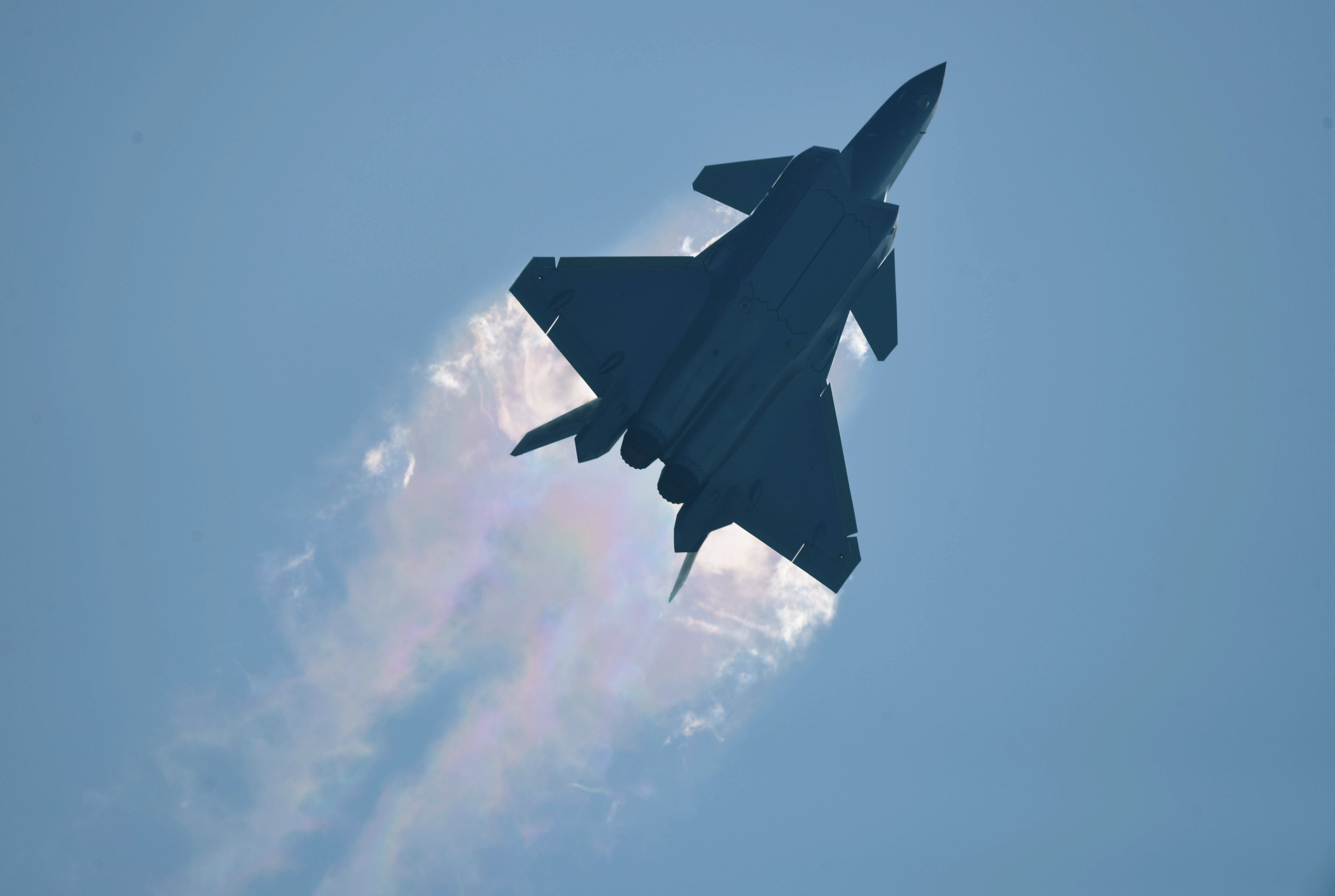May 31, 2023
What we've got here is a failure to communicate ... and it's already resulted in at least one close call. US military officials this week said that an American spy plane and a Chinese fighter jet nearly collided over the South China Sea last week. The US plane was flying in international airspace, and a Chinese J-16 fighter cut in front of its nose, forcing it to fly through the jet's wake. The Pentagon called it an “unnecessarily aggressive maneuver”; Beijing said the spy plane "intruded" its territory.
The rub? Communication between the two nations has eroded to alarming levels in recent months. Since the US shot down a Chinese spy balloon in February — with Secretary of State Antony Blinken canceling a trip to meet his Chinese counterpart at the time — engagement levels have been low. Blinken has tried without success to reschedule the trip, and China recently rebuffed Washington’s invitation for both countries' defense chiefs to meet on the sidelines of the Shangri-La Security Dialogue in Singapore this week. This is likely in response to Washington's refusal to lift sanctions imposed on their Defense Minister Li Shangfu for his role in assisting the transfer of fighter jets and missile systems to Russia.
“China has a history of freezing bilateral communications channels in response to crises, one rationale for which is a view that dialogue is incompatible with deterrence,” says Eurasia Group China analyst Anna Ashton.
But a lack of open communication raises risks of misunderstandings spiraling into crises. We'll be watching to see whether US and Chinese officials can reopen channels of communication and avert future such mishaps.
More For You
Hellenic coast guard performs SAR operation, following migrant's boat collision with coast guard off the Aegean island of Chios, near Mersinidi, Greece, February 4, 2026.
REUTERS/Konstantinos Anagnostou
15: The number of migrants who died after their boat accidentally collided with a Greek Coast Guard vessel in the Aegean Sea on Tuesday. Two dozen people were rescued.
Most Popular
Walmart is investing $350 billion in US manufacturing. Over two-thirds of the products Walmart buys are made, grown, or assembled in America, like healthy dried fruit from The Ugly Co. The sustainable fruit is sourced directly from fourth-generation farmers in Farmersville, California, and delivered to your neighborhood Walmart shelves. Discover how Walmart's investment is supporting communities and fueling jobs across the nation.
Workers repair a pipe at a compound of Darnytsia Thermal Power Plant which was heavily damaged by recent Russian missile and drone strikes, amid Russia's attack on Ukraine, in Kyiv, Ukraine February 4, 2026.
REUTERS/Valentyn Ogirenko
Democratic Alliance leader John Steenhuisen announced Wednesday that he will not run for a third term as leader of the liberal, pro-business party, after months of internal pressure over a host of controversies – including allegations, since cleared, that he used the party credit card for Uber Eats.
© 2025 GZERO Media. All Rights Reserved | A Eurasia Group media company.
